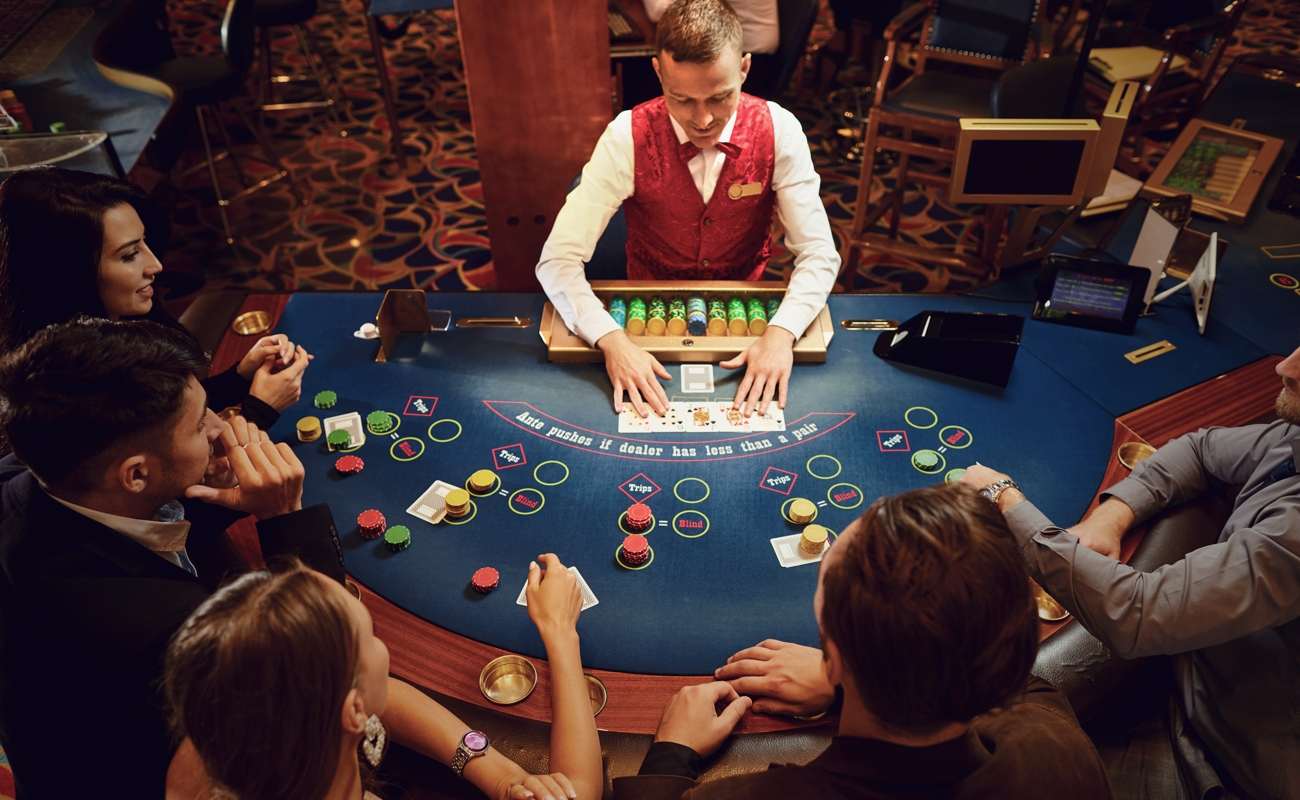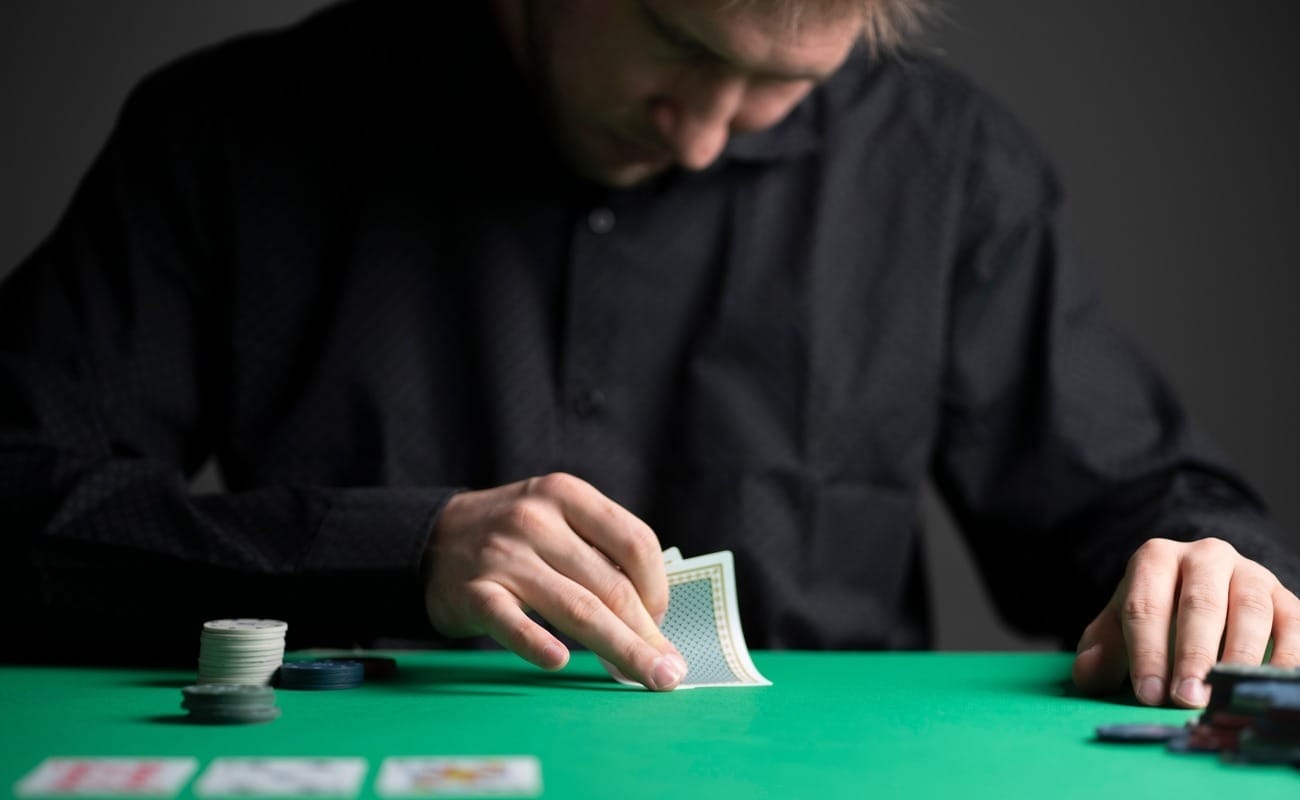Gambler’s fallacy is one way the human brain tries to find a pattern to make sense of something. It’s also called the Monte Carlo fallacy after the Casino de Monte-Carlo, where it was observed in action in the early 1900s at the roulette wheel.
Gamblers like to think they’re able to make logical, objective, and skillful decisions when they play casino games. The reality is that players often have biases or cognitive “blind spots” that affect the way they play.
Read on to discover how gambler’s fallacy can impact your game, how this phenomenon influences your decisions, and what you can do to avoid it.
Defining Gambler’s Fallacy
So, what is the gambler’s fallacy? It occurs when an individual erroneously believes that a certain random event is more or less likely to happen based on the outcome of a previous event or series of events.
In reality, past events don’t change the probability that certain events will occur in the future. In other words, when it comes to chance in poker, previous hands don’t affect future hands.
Some gamblers use the term “the gambler’s paradox” interchangeably with the gambler’s fallacy, while others use it to refer to the belief that a gambler is more likely to win a series of small bets than a single large bet, even if the odds are the same.
The Best Example of Gambler’s Fallacy
One of the most common and basic examples of the gambler’s fallacy is coin flipping. If a coin is flipped four times, for example, and it lands on heads every time, this usually leads to one of two logical ways of thinking about the next coin toss:
1. Since the coin has landed on heads so many times, it’s likely to land on heads again on the next coin toss.
2. Since the coin has landed on heads so many times, it’s likely to land on tails on the next coin toss.
Both ways of thinking are examples of the gambler’s fallacy, as none of the previous coin flips really matter. Every time you flip the coin, you have exactly the same odds (±100) of landing on heads or tails, regardless of how many times the coin previously landed on heads or tails.
Examples of Gambler’s Fallacy in Poker

There are numerous scenarios where gambler’s fallacy psychology comes to the fore in ordinary poker contexts. Here are two examples:
- A player loses his stack to another when his pair of kings is bested by a pair of aces. This happens all the time, but in this instance, the player with the kings justifies his call of his opponent’s all-in bet by saying, “I didn’t think he had aces, because this guy [pointing to another player] just had aces on the previous hand.”
- During a live poker tournament, a player wins a huge pot when she flops a set of eights, having called an unusually large preflop raise. While raking in the chips, she says, “I normally would have folded. I only stayed in because eights have been hitting the board a lot tonight.”
Taking Advantage of Players
Since many players fall prey to the gambler’s fallacy, there are ways to take advantage of it and develop the skill to make it work in your favor.
Consecutive Pocket Pairs
If you’re lucky enough to get a big pocket pair immediately after a hand in which you had another big pocket pair that was shown, opponents simply won’t believe that you could have aces or kings again so soon. So play these hands hard and fast — because opponents are more likely to call your bets with weaker hands than they typically would.
Card Frequency and Bluffing
If players have been discussing a perceived heightened frequency of some rank of a card being on the board, you can use this to bluff and look for an opportunity to make a large bet or raise with comments like, “I knew these sixes would come again for me.”
How To Avoid Gambler’s Fallacy

If you’re wondering how to avoid falling for the fallacy, you should approach each game as if it were a fresh start, reminding yourself that previous rounds have no influence on the hand that’s about to be dealt.
Stay aware of other cognitive biases that can affect your gambling behavior, such as a lucky tie you wore when you landed some of your biggest wins. Remember that luck isn’t dispositional and doesn’t favor items of clothing, objects, or numbers.
Many gamblers believe they have a certain amount of control over their “luck” (like selecting their own roulette numbers). This is known as superstitious conditioning. The reality is that how numbers are selected has absolutely no bearing on the outcome of a luck-based game.
Fact or Fallacy? Find Out For Yourself
Now that you’re familiar with this common poker phenomenon, you’ll be better equipped to land those wins when you play poker online. Register with Borgata Online for online poker or choose from a large assortment of slots and other table games.
